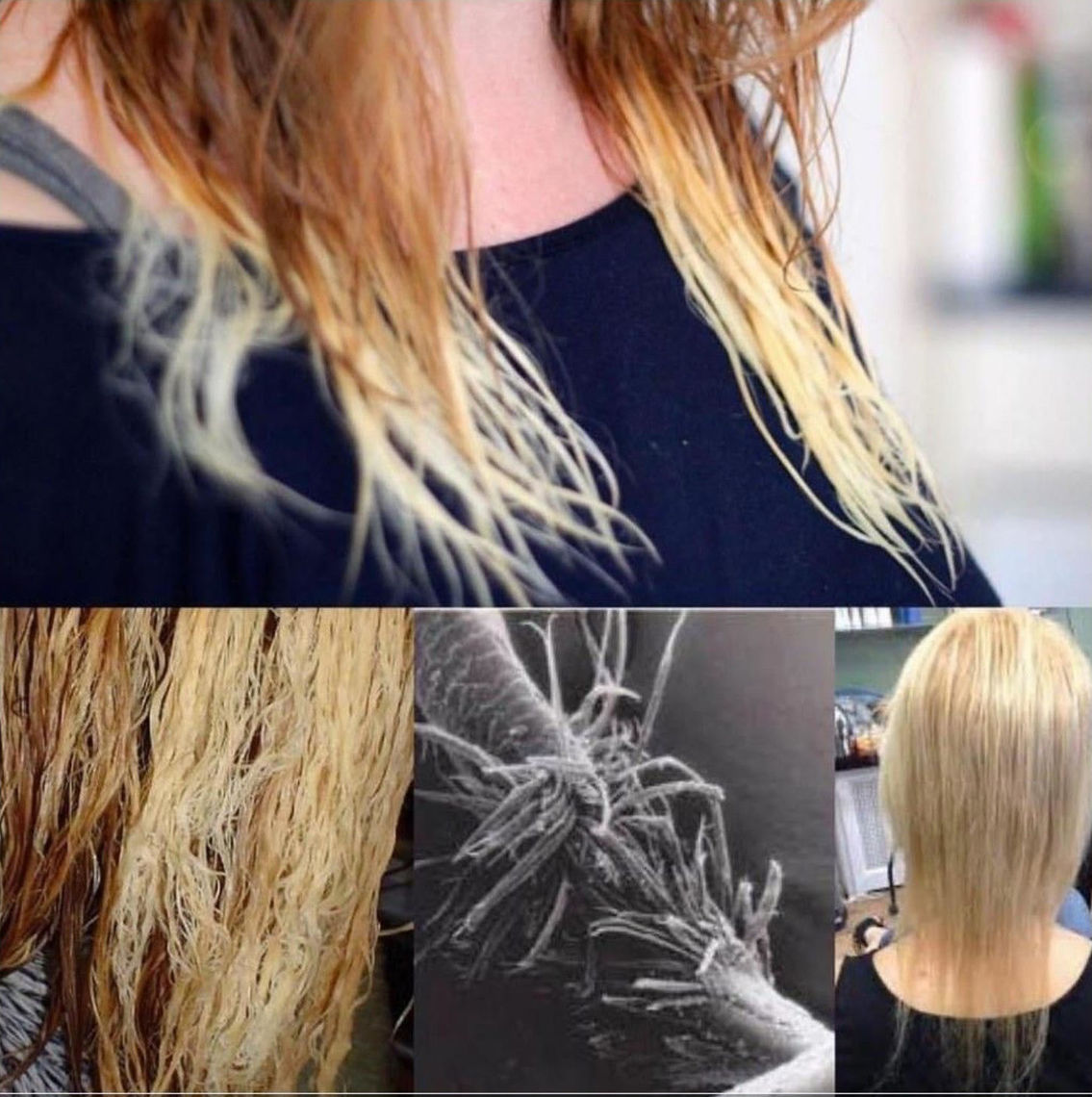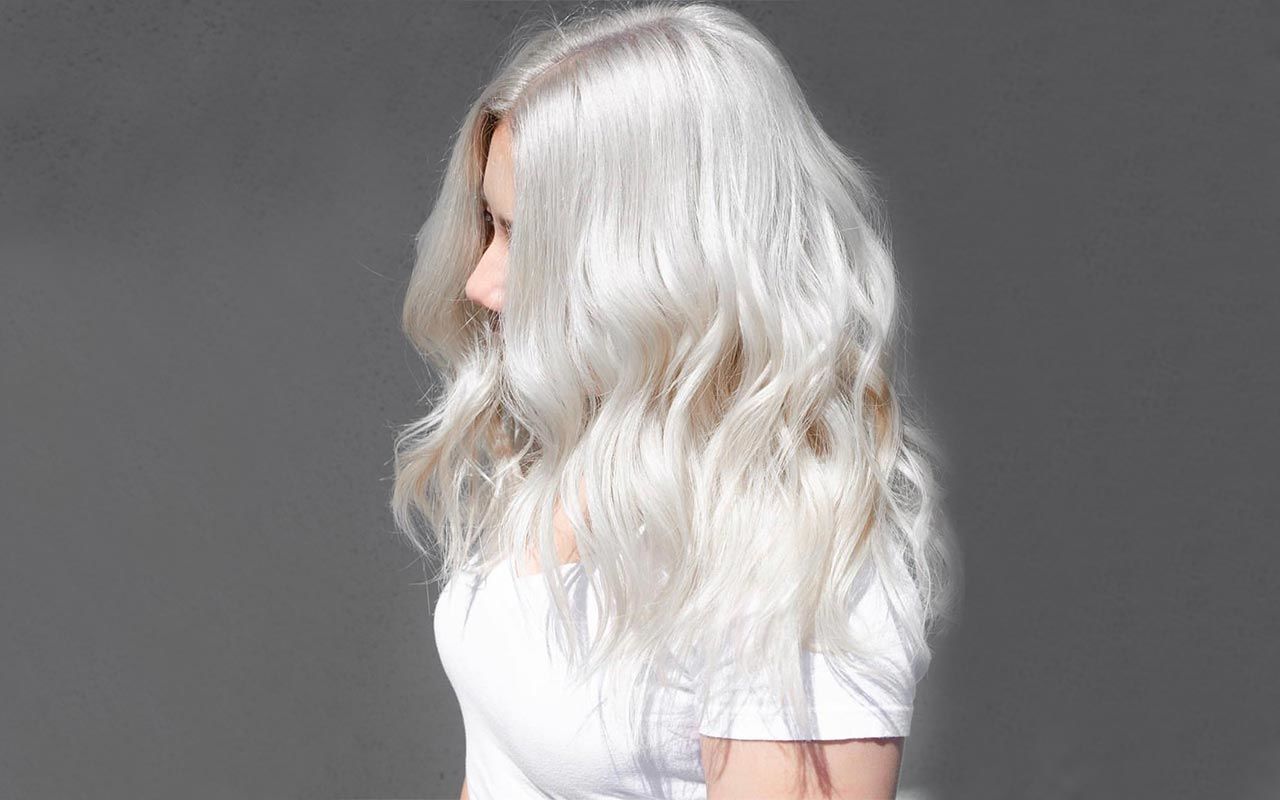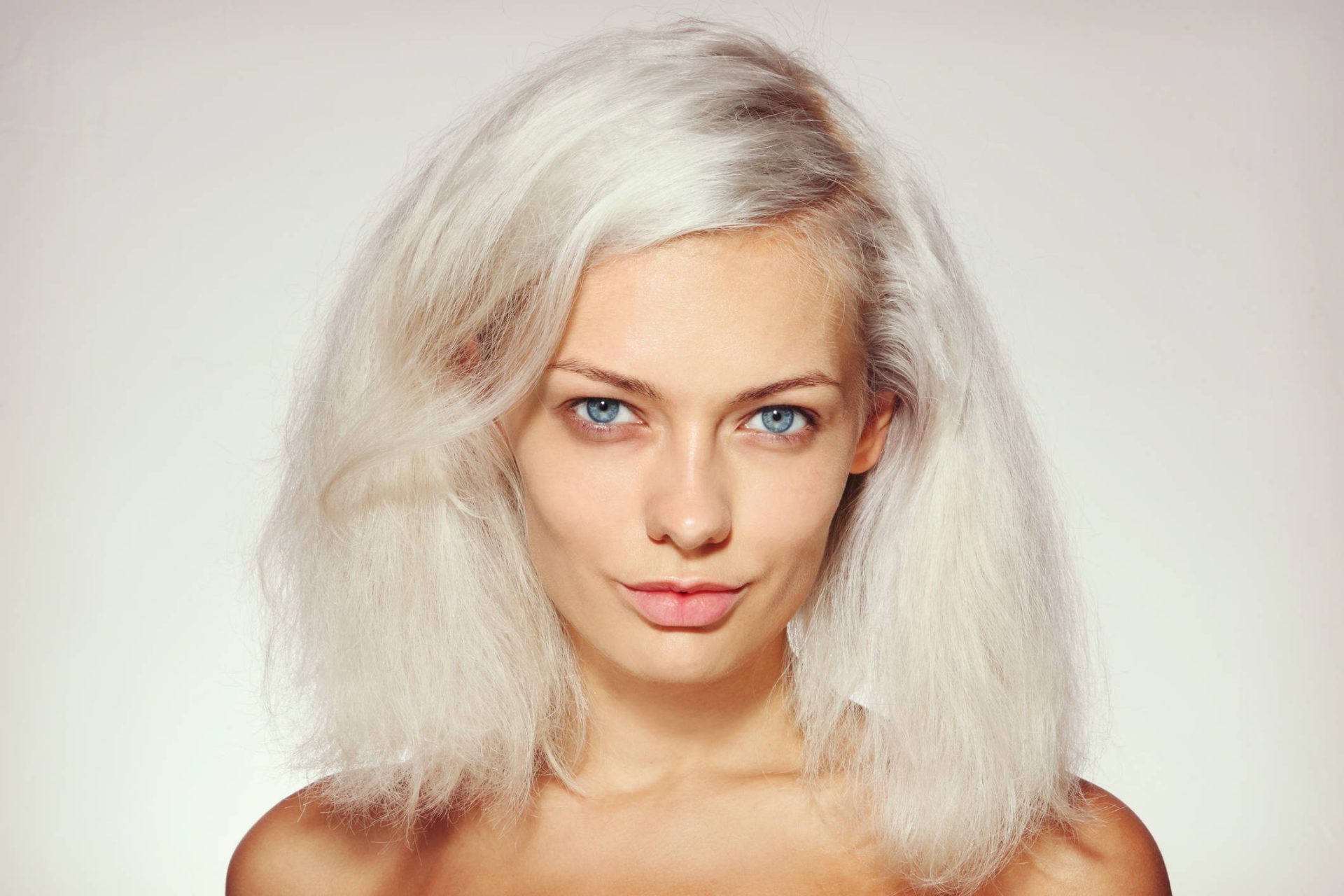Feeling a bit worried about your hair after a bleaching session? You are definitely not alone, you know. Many people find themselves looking at strands that just do not seem right anymore. That once bright, fresh color might now come with a texture that feels, well, just a little off. Perhaps it feels like it has gone past a point of no return, almost. This feeling of concern about your hair's well-being is a very common experience for those who have lightened their locks.
It can be quite disheartening, can't it, to reach for your hair and find it feeling more like something brittle or stretchy, rather than the soft, flowing mane you were hoping for. That vibrant shine you pictured might be replaced by a dullness, or even a strange, almost cotton-like fluffiness. You might see little pieces breaking off, or notice that it just does not hold a style like it used to. This shift in your hair's usual behavior can certainly cause a bit of alarm, and it's something many folks deal with after trying to achieve that lighter look.
So, if your hair seems to have crossed a line, going from lovely to quite distressed, this guide is here to offer some comfort and practical thoughts. We will look at what happens when hair is pushed a little too far with lighteners, what signs to keep an eye out for, and some ways to bring back some life and softness to those strands. It is about getting a better grasp on what "over processed" actually means for your hair, and finding a path to help it feel more like itself again, which is something we all want, naturally.
- Dj Cassidy Father
- Marissa From Mob Wives
- Gunna Controversy
- Whitney Martin Wedding
- Little Red Wagon Miranda Lambert
Table of Contents
- What Does "Over Processed Bleached Hair" Really Mean?
- Why Does Hair Get "Over Processed" Anyway?
- How Can You Help "Over Processed Bleached Hair" Recover?
- Is Prevention Possible for Over Processed Bleached Hair?
What Does "Over Processed Bleached Hair" Really Mean?
When we talk about hair that has been "over processed," we are really saying it has gone beyond what it can handle, almost like pushing it past a barrier it should not cross. Think of it this way: the word "over" can mean going "beyond" a certain point, or doing something "more" than is good. In the context of your hair, it means the lightening chemicals have worked on the hair for too long, or maybe too strongly, causing a bit too much change within each strand. Basically, the hair's structure has been altered to a degree that it struggles to keep its natural strength and bounce. It is like the hair's protective layer, the cuticle, has been lifted too much, or even completely worn away in some spots, leaving the inside of the hair, the cortex, exposed and quite vulnerable. This leaves your hair feeling like it is lost its natural integrity, you know, its usual healthy feel.
Signs Your Hair Has Gone "Over" the Limit
How do you tell if your hair has crossed that threshold into being "over processed bleached hair"? Well, there are a few clear signals your hair will send you. For one thing, it might feel quite stretchy when it is wet, like a rubber band that has lost its snap, rather than just having a little give. It might also feel somewhat mushy or gummy to the touch when it is damp, which is certainly not a good sign. When it dries, it can feel like straw, or perhaps even like cotton candy that just pulls apart easily. You might also notice a lot more breakage than usual, with little bits of hair snapping off, especially when you brush or comb it. Sometimes, it can look quite dull, losing any natural shine it once had, or it might even have a strange, frizzy halo that just will not lie flat. The color itself might seem a bit uneven or brassy, too. These are all pretty strong hints that your hair has gone "over" the healthy processing limit, and it needs some serious attention, obviously.
Why Does Hair Get "Over Processed" Anyway?
So, you might be wondering, why does this even happen? Why does hair get "over processed" in the first place? It usually comes down to a few things. Sometimes, it is about leaving the bleach on for a little too long, maybe because the desired lightness was not reached quickly enough, or perhaps the timing was just misjudged. Other times, it could be using a developer that is a bit too strong for your hair type, especially if your hair is already fine or has been lightened before. Applying bleach to hair that already has some damage, or perhaps has been colored many times, can also lead to it going "over" the edge. Even overlapping the bleach onto previously lightened sections can cause problems, because those parts have already been through a chemical process and are more sensitive. It is really about the hair's capacity to handle the chemical change, and sometimes, that capacity is just exceeded, you know, it is pushed too far.
- Celebrity Bodies
- Signs Your Attractive Guy
- Why Are Old People So Stupid
- Brandon Elementary
- Matildas Best Friend
The Chemical Reaction of Bleaching Over Processed Hair
To understand why "over processed bleached hair" happens, it helps to think about what bleach actually does. Basically, when you bleach your hair, you are using chemicals that open up the hair's outer layer, the cuticle. Once that is open, the bleach works its way inside, where it starts to break down your hair's natural color pigments. This process, which removes the color, is called oxidation. When the hair is "over" processed, it means this oxidation has gone on for too long, or it has been too aggressive. It starts to break down more than just the color; it begins to break down the hair's protein structure, which is what gives your hair its strength and elasticity. This is where the damage truly happens. The bonds that hold your hair together get weakened, or even completely snapped. When these bonds are broken, the hair loses its integrity, making it feel weak, gummy, and prone to breaking. It is like a building whose support beams have been compromised, you know, it just cannot stand up properly anymore. This is why the hair feels so different after it has been pushed past its limit.
How Can You Help "Over Processed Bleached Hair" Recover?
If your hair is showing the signs of being "over processed bleached hair," the good news is that there are steps you can take to help it feel better and mend a bit. It will take some time and a lot of gentle care, but improvement is certainly possible. The first thing to do is stop any further chemical treatments immediately. No more bleaching, no more perms, no more harsh colors for a while. Your hair needs a break to rest and start its healing process. You will want to focus on products that are really rich in proteins and moisture, because these are the building blocks your hair has lost. Think of it like giving your hair a very nourishing meal after it has been starved. These products help to patch up those broken bonds and bring some much-needed hydration back to the strands, which is really important.
Gentle Care for Over Processed Bleached Hair
Caring for "over processed bleached hair" means being incredibly gentle with it, you know, almost treating it like a delicate silk garment. When you wash it, use a sulfate-free shampoo, as these are much milder and will not strip away any precious moisture. Condition every single time you wash, and consider leaving the conditioner on for a few extra minutes, almost like a mini-mask. Deep conditioning treatments are going to be your very best friend here. Use them once or twice a week, leaving them on for a longer period, perhaps even with a warm towel wrapped around your head to help the product sink in deeper. When you dry your hair, avoid rubbing it roughly with a towel; instead, gently blot away the water. Air drying is always a better choice than using hot tools, but if you must use heat, use the lowest setting possible and always, always apply a heat protectant. Brushing should be done with a wide-tooth comb, starting from the ends and working your way up, being incredibly careful not to pull or tug. Sleep on a silk pillowcase if you can, as this creates less friction than cotton, which can otherwise cause more breakage. It is all about giving your hair the softest touch and the most loving treatment possible, basically, to help it recover its strength and feel.
Is Prevention Possible for Over Processed Bleached Hair?
The very best approach to "over processed bleached hair" is, of course, to try and prevent it from happening in the first place. Prevention really is key here, you know. If you are thinking about bleaching your hair, or even if you bleach it regularly, there are steps you can take to keep it from going "over" that point of damage. One of the most important things is to have a thorough consultation with a professional stylist. They can assess your hair's current condition, its history, and its natural strength. They can then recommend the right approach, including the correct strength of bleach and the proper timing for your specific hair type. Trying to lighten your hair too quickly or going for a very dramatic change in one session can often lead to problems, so sometimes, a slower, more gradual process is actually much safer for your hair's health.
Steps to Avoid Over Processing Your Bleached Hair
To keep your hair from becoming "over processed bleached hair," you can take several protective measures. For a start, always do a strand test before applying bleach to your whole head. This lets you see how your hair reacts and how long it takes to lift, without risking all your hair. Using bond-building treatments, either mixed into the bleach or applied as a separate step, can make a huge difference. These products help to protect and rebuild the hair's internal bonds during the lightening process, making it much more resilient. Never overlap bleach onto hair that has already been lightened, which is a common mistake. If you are doing touch-ups, be very precise with your application, only putting the product on the new growth. Also, consider the overall health of your hair before bleaching. If it is already feeling dry or a bit fragile, it might be a good idea to wait and get it in better shape with conditioning treatments first. Eating well and staying hydrated also helps the overall health of your hair, too. Ultimately, it is about respecting your hair's limits and giving it the care it needs, before, during, and after any chemical service, which is really what keeps it looking its best.
This article has covered what "over processed bleached hair" means, how to spot the signs of it, why it happens, and how to begin helping your hair recover, along with tips for preventing it in the future.
- David Epps
- Where To Watch Jumanji 2017
- Who Is The Black Guy In The New Att Commercial
- Nicholas Colt
- I Could Be Brown I Could Be


